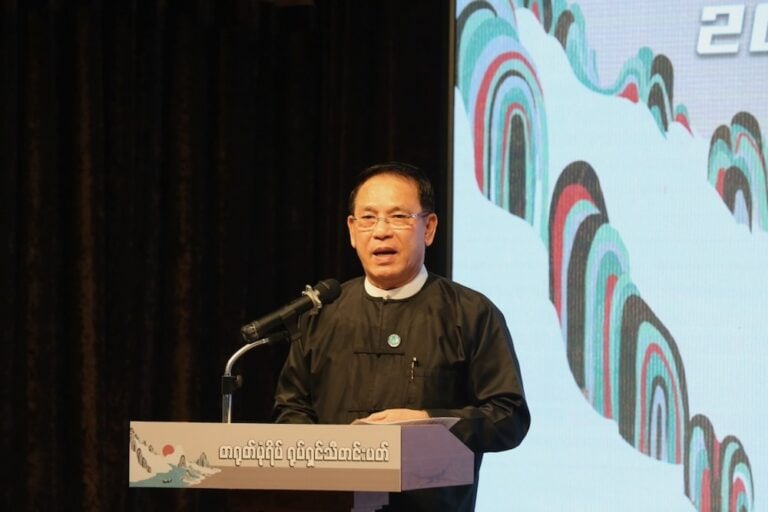(Mizzima/IFEX) – The Burmese military junta’s censorship board has imposed restrictions in the coverage of the anniversary of the deadly Cyclone Nargis, sources in local journals in Rangoon said. While local papers are being allowed to carry reports and pictures of the situation a year after the cyclone, the censorship board has imposed restrictions. “We […]
(Mizzima/IFEX) – The Burmese military junta’s censorship board has imposed restrictions in the coverage of the anniversary of the deadly Cyclone Nargis, sources in local journals in Rangoon said.
While local papers are being allowed to carry reports and pictures of the situation a year after the cyclone, the censorship board has imposed restrictions.
“We can report on the Nargis anniversary. There have been many news reports appearing in the media this week. But the censorship board has rejected some news based on the content of the story,” an editor of a local weekly journal told Mizzima.
“The censorship board mainly rejected stories and pictures that show the severity of destruction and people still struggling for recovery after a year,” he said.
“We have to be careful while writing the stories. We cannot be critical of the government’s efforts on recovery. If our stories say that victims are still suffering they get rejected. We must report that the situation is progressing from an optimistic viewpoint,” he added.
Cyclone Nargis, which lashed Burma on 2 May 2008, left about 140,000 dead or missing and 2.4 million people devastated, resulting in many orphans.
The censorship board has also restricted and banned stories that speak of the relief efforts being carried out by international and local non-governmental organizations.
However, news reporting on rehabilitation work in the cyclone-hit region in Irrawaddy Division, Laputta, Bogale and Pyinsalu is allowed to be published.
An editor of another local weekly journal said that they were allowed to report on the rehabilitation work.
“We had a special issue on the Nargis anniversary. Not many stories and articles were censored. They censored only a few. We reported on the rehabilitation work being conducted in Laputta and Pyinsalu,” he said.
Meanwhile, though local journals wanted to break the news of fish paste products containing chemical substances, which are unfit for consumption, the censorship board kept it pending until the state-run newspaper could report the matter.
The editor said most of the stories run in the local journals are filled with the government’s efforts on recovery, written in an optimistic manner, because only such stories are approved by the censorship board.
The censorship board reportedly instructed editors of local journals not to criticize the government on its work in cyclone-hit regions and regarding the victims of cyclone Nargis.
After Cyclone Nargis, the junta arrested a total of 21 journalists and aid volunteers who provided voluntary services to victims. They were charged and given prison terms.
The US-based Committee to Protect Journalists, in its statement released on 30 April 2009, ranked Burma as one of the worst countries for journalists, bloggers, and internet users.
The Myanmar Fishery Federation, during its regular meeting on 5 May, decided that journalists would be allowed to ask them whatever information they wanted freely.
However the executive officer of the fishery also said that the organization would check and scrutinize the news and facts regarding the fishery sector.


